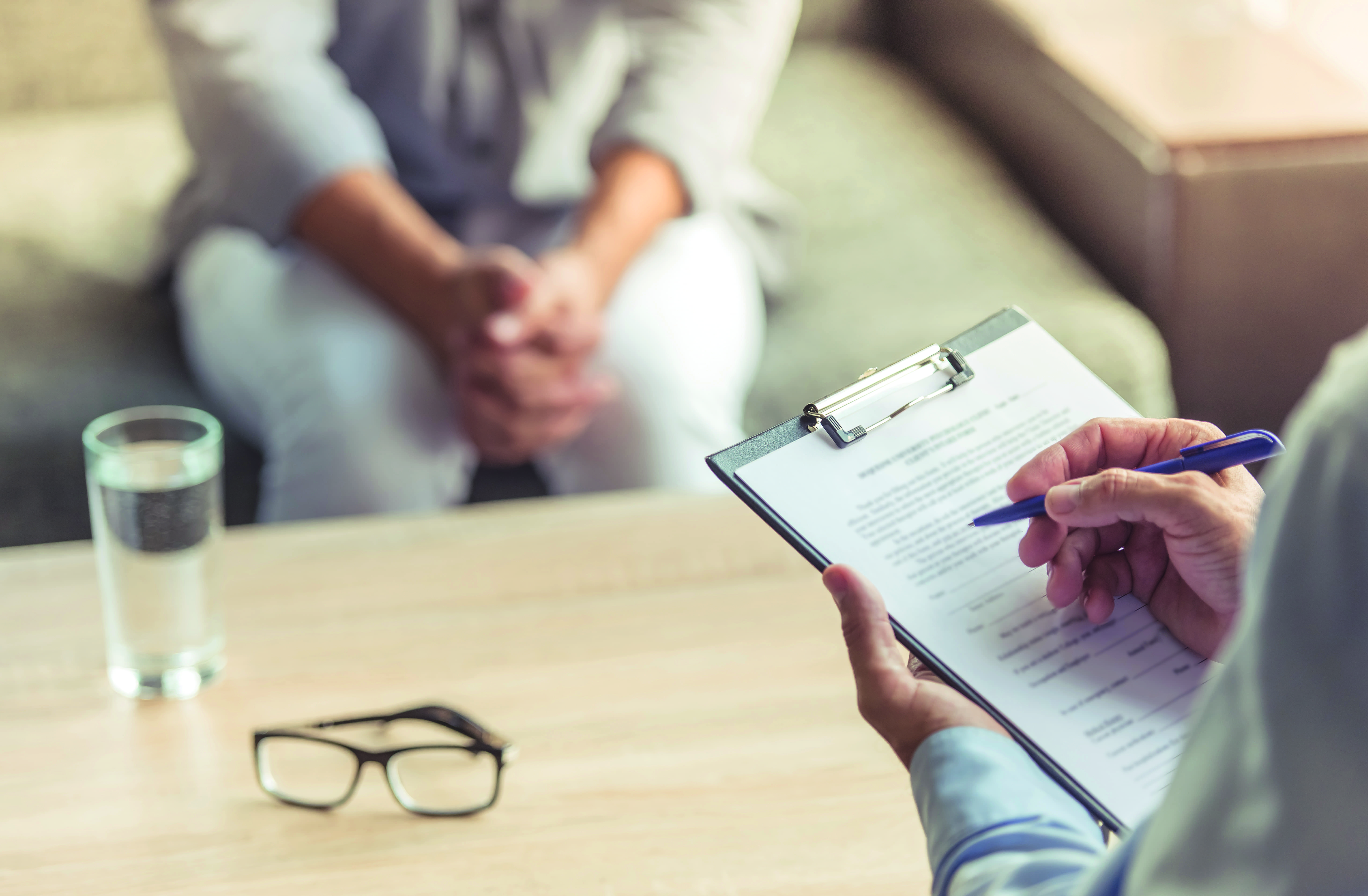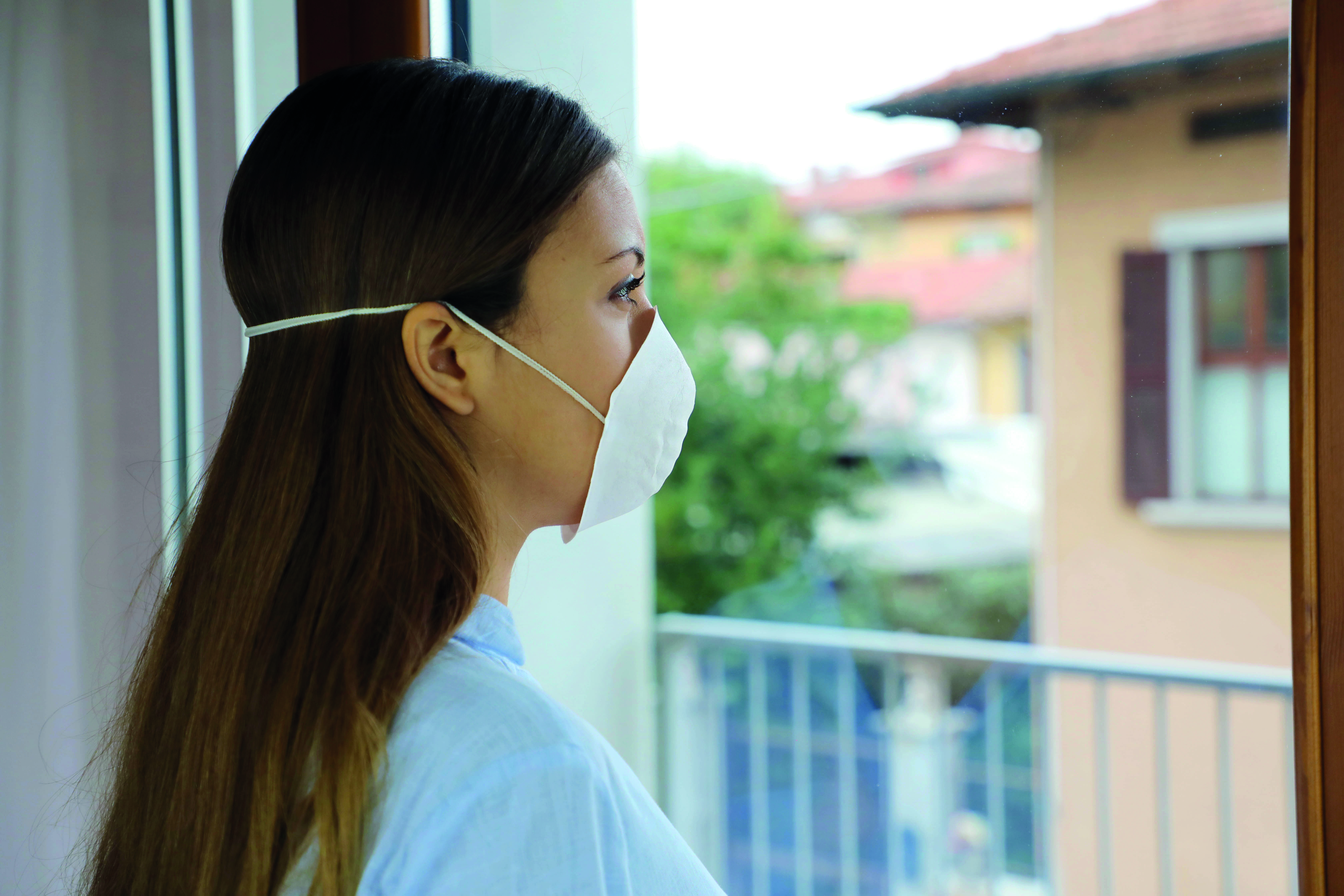Protecting your mental health in covid-19 times

Covid-19 has had an enormous impact on people’s lives, their businesses and the economy, but it has also had a huge effect on the nation’s mental health as a whole.
“The covid-19 lockdown has resulted in increased levels of anxiety, poor sleep, persistent sadness, binge eating, suicidal thoughts, snacking, consumption of alcohol and reduced levels of physical activity”, says Stanley Ulijaszek, professor of human ecology and director of the Unit for Biocultural Variation and Obesity (UBVO), (1) which carried out a study examining how poor eating and reduced physical activity had been contributing to negative mental health during lockdown.
A report by the Office for National Statistics (2) also showed that almost half of people (49.6%) in Great Britain were experiencing “high” levels of anxiety, with the most common concerns being their wellbeing, work and finances.
In fact, financial stress is one of the biggest contributing factors. The Centre for Mental Health predicted an additional 500,000 people will experience problems such as depression just as a result of the economic impact, (3) while those with existing mental health difficulties were likely to be “affected disproportionately”, it said. It also highlighted that significant unemployment would be a major risk to an increase in suicides across the nation.
Nofie Johnston, a registered mental health nurse and is clinical lead at Juno Aesthetics, says, “There has been a worldwide issue with suicides related to people feeling hopeless about their situation. We know that when things are tough economically there is a rise in the suicide rates, because losing your income, home, marriage, relationship or business, as well as coping with bereavement, is a catastrophic change for a person to cope with.”
Safeguard your mental health
When we speak about mental health as medical practitioners it is usually in the context of patients. There may be an assumption that because medical practitioners have to deal with mental health in their patients that they should be better equipped to cope themselves, but mental health does issues no discriminate and anyone can suffer at any time. The Centre for Mental Health report warned that “health and care workers and other frontline workers are at greater risk of developing mental health problems as a result of covid-19.” (3)
In fact, because healthcare professionals work in such high-stress jobs, statistics show they are more susceptible during pandemics. (8-10) A recently published paper which examined mental health problems faced by health care workers during covid-19 (8) suggested they were at higher risk of developing anxiety, depression and stress during these periods. (8-9) The reasons for this ranged from excessive workload and increased work hours, inadequate personal protective equipment, over-enthusiastic media news and feeling inadequately supported. (10)
Whether you have been facing increased stress due to loss of finances and your business being closed, have been working on the front line within the NHS during the crisis, have lost a loved one to the virus or been isolated and separated from elderly parents; or a combination of those things, the impact on the mental health of practitioners should not be underestimated.
Returning to work after being off for months, having to let staff go, coping with all of the uncertainty and ever-changing rules and regulations and going back to clinic after being on the frontline are just a handful of the things aesthetic professionals will be adjusting to as they re-open their clinics, and even with so much to cope with, your mental wellbeing should be high on the list of priorities.
Lou Sommereux, founder and clinical director of Cosmex Clinic in Cambridgeshire, has a background in mental health and general nursing. She comments, “One really big concern that people have is about exposing themselves to possible infection as well as being anxious about not having enough or adequate PPE.
“I think it is important not to mentally isolate yourself. Sharing your fears and anxieties with others who are in the same position is invaluable. In the British Association of Cosmetic Nurses (BACN), we have pockets of practitioners supporting each other within regional groups and this has been a huge source of support and will continue to be as we ease out of lockdown.”
Johnston says, “Practitioners may be experiencing adjustment issues in the new ways they are working. There is also anxiety caused by the uncertainty of the ability to continue working – will there be local lockdowns on the horizon and will they be able to catch up with four months of no income and the burden of extra costs with PPE?”
She recommends the following action points:
• You can self-refer to counselling via the Improving Access to Psychological Therapies (IAPT) programme. You can refer patients to their GP for this, but don’t forget to do the same for yourself if you are struggling (13)
• Try to return to a routine that includes productive (not destructive) ways of coping, e.g. gardening, exercise, connecting with friends
• Use external help and advice and the services you already pay for – i.e. your accountant can reassure you about the debt you carry and how to pay it off, professional organisations can assist with policy changes, and so on.

Access support
The NHS offers support for doctors, nurses and other healthcare workers (4) and has produced a covid-19 Workforce Wellbeing document to signpost practitioners to getting help. It has also produced a document called “Living with worry and anxiety amidst global uncertainty”, which offers advice about how to cope with the additional stress and anxiety we are all feeling at the moment.
Some of its key points are:
• Maintaining balance
• Practising postponing your worry
• Speaking to yourself with compassion
• Mindfulness
The importance of balance
Many psychologists believe that wellbeing comes from living a balanced life that includes activities that give you feelings of pleasure, achievement, and closeness. (6)
While it may be tempting to jump right in at the deep end after months of being closed and fill your diary back to back with patients, this could lead to burnout and increased risks to your mental health.
Aesthetic nurse Tracey Dennison, who runs East Riding Aesthetics Clinic and is also a mindset coach working in the NHS, says looking after her own mental health has been a priority during the pandemic. She says, “I am mindful of the fact that the NHS has burnt a lot of us out in recent months, so we just need to be very careful with our own mental health and take care of ourselves. It’s the age-old adage of putting your own oxygen mask on first.
“People have had a really tough time. Stepping back into the NHS if you have been full time in aesthetics is quite a tough thing to do. For me, aesthetics is the ying to my NHS yang. However, now that I’m able to see aesthetic patients again it can be tempting to just jump in feet first.”
Dennison says that setting boundaries and giving yourself time out is key. She adds, “One of the things that I have been really strict about coming back into my aesthetics practice is my diary. I still work in the NHS and my PA has both my business and NHS diaries. It is important for me to make sure I have time off and don’t try and fill every gap I have with patients.
“We are all going to be overwhelmed with patients. My diary is full until October, which is brilliant, but I have made sure it is not heaving until then because I want to be able to stay sane and be able to manage it.”
Sommereux agrees and says there is no guilt or shame in not going back to working at the same level as you were before. “I think one of the key things is not to rush or tell yourself that you have to function exactly the way you did before lockdown,” she says. “You have to pace yourself and only do what you are comfortable with.
“A lot of people have said to me that they don’t want to go back to working the way they were before lockdown, that they are enjoying the slightly slower pace. I think a lot of people are feeling this way so it is really important to reassess our values – self-evaluation is really important.
“Don’t feel guilty about having shorter days or feel like you should be doing more because someone else is.”
One of the reasons many practitioners are panicking is the fear of losing patients if they are not able to accommodate the demand as soon as they open, but Sommereux says having a waiting list can actually be a good thing: “I know some people are feeling overwhelmed by the volume of work and this backlog we all have”, she says, “But it’s a good thing to have a waiting list. I am in touch with my patients and I have told them what procedures I’m doing, that I will be increasing my availability and what we offer as time goes on but for now I’m watching what’s happening in the area where I live. I think it actually instils confidence and trust in the clinician and the clinic because they aren’t rushing, they are taking their time and they are following safety measures.”

Help yourself out
When we are struggling with anxiety and worry, we can lose touch with things that used to give us pleasure. Plan to do some activities each day that are pleasurable and make you feel joyful, even if it’s something small. We feel good when we have achieved or accomplished something, so it’s helpful to include activities each day that give you a sense of achievement. (6)
“I think it is really important to make time for yourself, whether its exercising, walking, reading, meditation or yoga”, Sommereux says. “Do things that you enjoy doing that you get pleasure from and that help you relax and just empty your mind.”
In mindfulness circles there’s a lot of talk about setting aside specific times to allow yourself to worry and there’s a reason for that – it works. The Psychology Tools Worry Postponement Guide (7) says: “In practice, this means deliberately setting aside time each day to let yourself worry (e.g. 30 minutes at the end of each day). It can feel like an odd thing to do at first [but] means that for the other 23.5 hours in the day you try to let go of the worry until you get to your ‘worry time’.”
As a mindset coach as well as an aesthetic practitioner, Dennison practises mindfulness and gratitude and has found it to be a great coping mechanism and antidote to worry. She also prioritises exercise to help her mental health by running. She says, “I find gratitude to be extremely powerful. If you can find things to be grateful for then you really struggle to be miserable. For me, practising gratitude along with boundary setting, going running and making time for my family are my top priorities for supporting my mental health.
References
1. https://www.oxfordobesity.org
2. https://www.ons.gov.uk/peoplepopulationandcommunity/wellbeing/bulletins/personalandeconomicwellbeingintheuk/may2020
3. https://www.centreformentalhealth.org.uk/sites/default/files/2020-05/CentreforMentalHealth_COVID_MH_Forecasting_May20.pdf
4. https://www.practitionerhealth.nhs.uk
5. https://www.practitionerhealth.nhs.uk/media/content/files/guide_to_living_with_worry_and_anxiety_amidst_global_uncertainty_en-gb(2).pdf
6. https://www.psychologytools.com/articles/free-guide-to-living-with-worry-and-anxiety-amidst-global-uncertainty/
7. https://www.psychologytools.com/resource/worry-postponement/
8. Mamidipalli Sai Spoorthy, Sree Karthik Pratapa and Supriya Mahant. Mental health problems faced by healthcare workers due to the COVID-19 pandemic – A Review. Asian J Psychiatr. 2020 Jun; 51: 102119.
9. (Wu K.K., Chan S.K., Ma T.M. Posttraumatic stress after SARS. Emerg. Infect. Dis. 2005;11:1297–1300.
10. Cai H., Tu B., Ma J., Chen L., Fu L., Jiang Y., Zhuang Q. Psychological impact and coping strategies of frontline medical staff in Hunan between January and March 2020 during the outbreak of coronavirus disease 2019 (COVID19) in Hubei, China. Med. Sci. Monit. 2020;26
11. https://www.ons.gov.uk/peoplepopulationandcommunity/wellbeing/bulletins/personalandeconomicwellbeingintheuk/june2020
12. https://www.mentalhealth.org.uk/coronavirus
13. https://www.england.nhs.uk/mental-health/adults/iapt/


